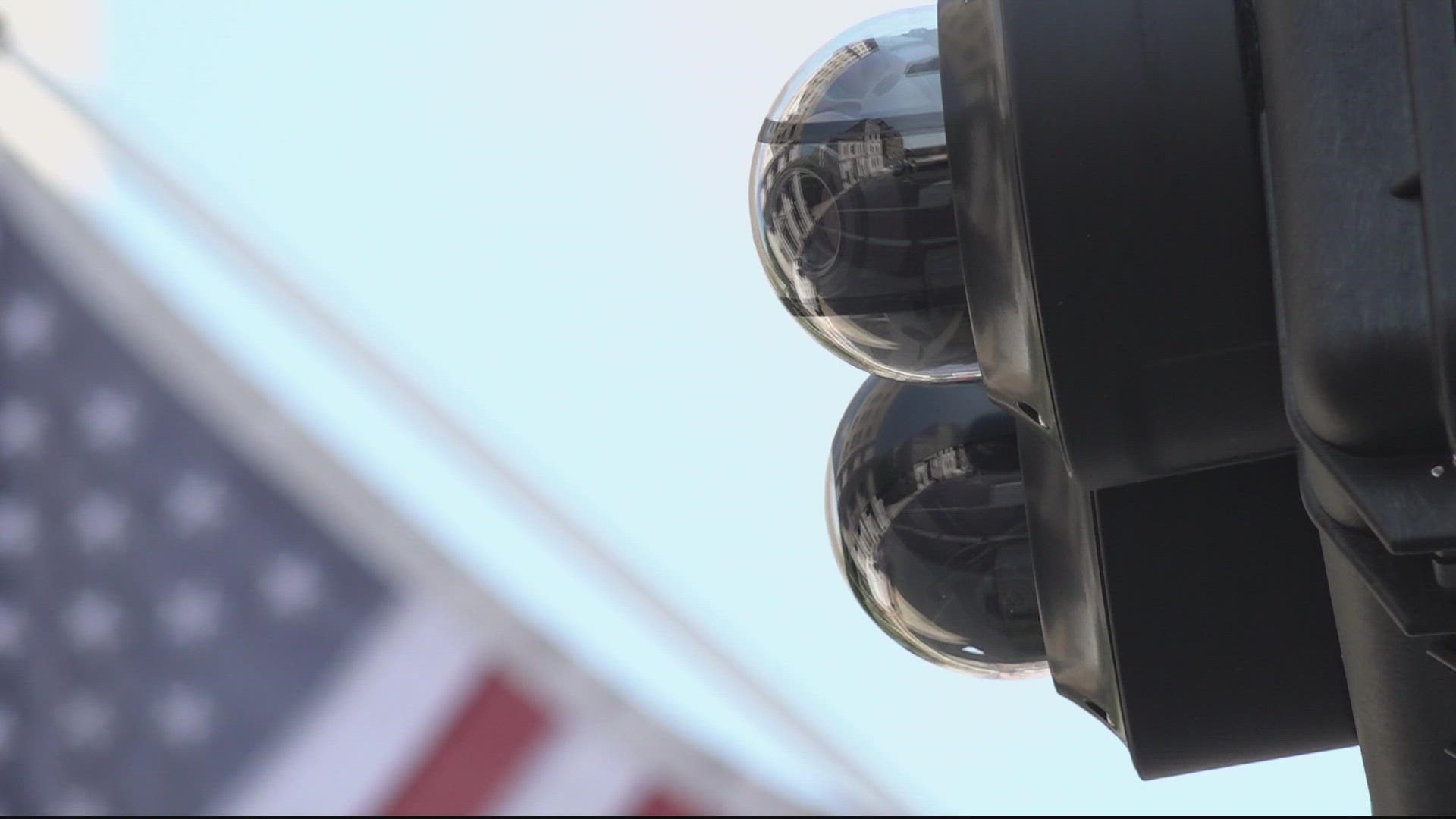WASHINGTON — This month, DC Councilmember Brooke Pinto introduced legislation that could bring major changes to the District, quietly.
The Vehicular Noise Reduction Act aims to cut down on noisy D.C. streets. It would engineer noise-reducing roadways and help repair noisy vehicles. It would also pilot a noise camera program to fine offenders.
"Noise pollution can have serious impacts on residents' physical and mental health," Pinto said in a statement accompanying the legislation. "Low-income and communities of color are more likely to suffer from these negative effects."
We wanted to know what a noise camera is and how they work.
THE QUESTION:
How would noise cameras work in the District?
THE SOURCES:
Reuben Peckham, SoundVue engineer for the British company Intelligent Instruments
WHAT WE FOUND:
The D.C. skyline could soon have new fixtures. They're not much to look at, but that's because they are for listening.
These noise cameras are actually called SoundVues. They are made up of multiple microphones pointed at particular angles, picking up decibels and directionality.
The Vehicular Noise Reduction Act acknowledges damaged cars can make more noise, but usually a vrooming vehicle is by driver design.
SoundVue engineer Reuben Peckham explains that when the camera hears a roaring, SoundVue will be triggered to track it, with precise microphones pinpointing the clamoring car.
"It's very accurate, which is very important, obviously, when looking at legal enforcement," Peckham said.
SoundVue technology is already in use right now in Knoxville, Tennessee, and parts of New York.
The D.C. legislation specifies: Local sound cameras would be attuned to D.C.'s noise standards. The District would have access to recordings of the offenses, and drivers could then be ticketed.
The proposal would put at least two cameras in each ward in the District, each with signage signaling the devices to drivers.
"It won't trigger from speech, occasionally it might trigger from a helicopter or something like that," Peckham said.
Peckham admits he has heard a chorus of opinions on the technology, but he says it's about quality of life.
The legislation proposes test driving the noise cameras for a couple of years to see how they work long term, and where they should be located.

